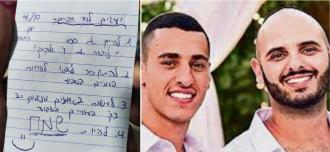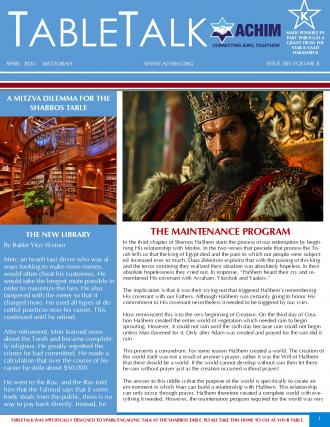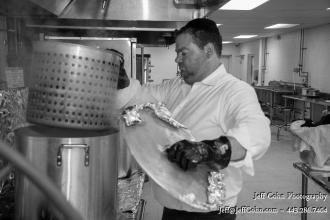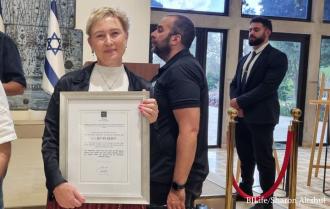Society, with its current lifestyle habits has created a high percentage of adults who are not well. The amount of adults with high blood pressure, type 2 diabetes or pre-diabetes, high cholesterol and obesity is higher than ever with many people having multiple health issues or full-blown metabolic syndrome. But over the last few months, I was working with a 12 year old and a 19 year old, both with “adult” diseases due to being overweight, poor eating habits and a sedentary life style. But with about one-third of children and adolescents ages 6 to 19 considered to be overweight or obese in the United States today, perhaps this comes as no real surprise.
Eliav’s mother called our office asking if we deal with 11 year old children. I told her that generally, we don’t take kids that young. However, I advised her to come by with her son so we could talk about it and see what we might be able to do. After meeting Eliav, we decided that he would be able to handle our program and the following week, we got started, although I did have some doubts because of his age. After all, school can create challenges to health. School can be a long day. Children leave relatively early in the morning and only come back in the late afternoon or for older kids, early evening. If one relies on school lunches, you have to eat what they have available or serve. Many times, there aren’t breaks at appropriate times to have a healthy snack to prevent coming home starving. And perhaps the biggest challenge are parties in school. The standard fair for a siyum or party that is given to the children is usually candy, chocolate, borekas, cakes and cookies; all unhealthy calories that contribute to our children’s weight gain. One of the biggest challenges is peer pressure. How are you going to feel when all of your classmates will be eating as much as they want of whatever they want and you are going to have restrictions?
Eliav took his program about as seriously as you can expect from a child. No matter what, after his long day in Cheder, he would do his exercise assignments at home and immediately, together with his mother, began eating better—a lot better! He cut out most of the junk from his diet and slowly and steadily, he began to lose weight. By the end of our time together, he lost over 8 kilograms. AND HE DID IT WITHOUT BEING HUNGRY. But the most impressive thing to me was his response to a question I asked him before he went away with his family to a hotel for Pesach. I asked him what he is going to do when he walks into a dining room with a huge buffet of lots of delicious foods and deserts. He told me he will take healthy choices and at most, only one desert each day. I asked him how he is going to be able to resist all of the temptation that surely will overwhelm him. He responded that taking extra food just isn’t worth it! He said, I want to lose weight so why would I do that? No how’s that for a quick cost-benefit analysis?
Mrs. P. called our office about her 19 year old Yeshiva Bochur. A true masmid who is sits and learns all the time, Chezky was very overweight but that was the least of his problems. He suffered from psoriatic arthritis, high triglycerides, high cholesterol, and a very fatty liver. To top it off, because of the arthritis and the amount of weight he was carrying around, it was very difficult for Chezky to walk for more than 10 minutes at a time, so exercising was going to be a challenge.
But one thing was for sure, Chezky was willing to do our program putting forth the best effort possible. His obstacles weren’t just the psoriatic arthritis and the obesity, he also had a very intense learning schedule and his Yeshiva was out of town so getting food from home on a steady basis was also going to be difficult. But each week, he did his exercise assignments to the best of his ability and followed the food plan as best he could considering he wasn’t in charge of preparing his own food. And week by week, weight came off. And the more active he pushed himself to become, the longer and faster he could walk pain free. After 6 weeks of exercise, good eating and most of all, starting to believe he could improve his lot, Chezky went for a new blood test. His fatty liver was gone, his cholesterol and triglycerides were all in the normal parameters. Although it wasn’t really a first-line goal of ours, his psoriatic arthritis was affecting him less and he was able to walk farther and faster every single week. His sugar readings were perfect.
There was a time when type 2 diabetes was known as “mature onset diabetes’ because it was only common in people age 50 and over. There was a time when a pediatrician had no idea what the proper dose of a statin (cholesterol lowering medication) was. What has happened that our children are become adults at a young age when it comes to certain disease? Sedentary life style, prepared foods, processed foods, trans fats, high fructose corn syrup and other sugars. We live in a generation that can afford more than what it needs, so eating out and overbuying are common. We also live in the computer generation. People used to go outdoors and be active as a form of recreation and entertainment. Not anymore.
When it comes to food and eating, don’t deny your child the occasional treat but rather limit them and always provide healthy alternatives. When your child gets home from school, vegetable sticks and cut up fruit should be out on the table for them. At first they may resist, but they will eventually come around and partake. Plan a treat per day and let them understand they only get one and they should enjoy it. It is a good idea for the parent to sit with a dietician once or twice to fully understand what healthy eating entails so they know what to teach their children and how to help them succeed. There are so many misconceptions about what proper, healthy eating is. Go to an expert and don’t do something extreme, or it will backfire.
For children, it is activity which can make the biggest difference. Kids used to go out every day and play! Start by having your child walk or bike to and from school. Have them get on and off buses a stop or two stops from their destination. They should use stairs and not elevators. Schools must be encouraged to incorporate physical activity into the school day. It doesn’t have to be competitive sports if that is problematic. Formal, scheduled programs are needed in the schools to introduce exercise and activity into our children’s lives.
As with everything in chinuch, modeling and setting the proper for our children by eating right and exercising is crucial. It is also important to get our schools involved by encouraging activity. We were able to help Eliav and Chezky, but we should try not to get to that place to begin with. We can save the lives of our children. Dealing with overweight and obesity in our children while it is still manageable will “add hours to your day, days to your year, and years to your life.”
Alan Freishtat is an A.C.E. CERTIFIED PERSONAL TRAINER and a BEHAVIORAL CHANGE and WELLNESS COACH with over 19 years of professional experience. Alan is the creator and director of the “10 Weeks to Health” program for weight loss. He is available for private coaching sessions, consultations, assessments and personalized workout programs both in his office and by telephone and skype. Alan also lectures and gives seminars and workshops. He can be reached at 02-651-8502 or 050-555-7175, or by email at alan@alanfitness.com Check out his web site – www.alanfitness.com US Line: 516-568-5027












